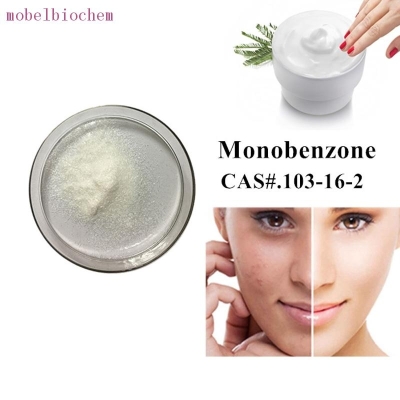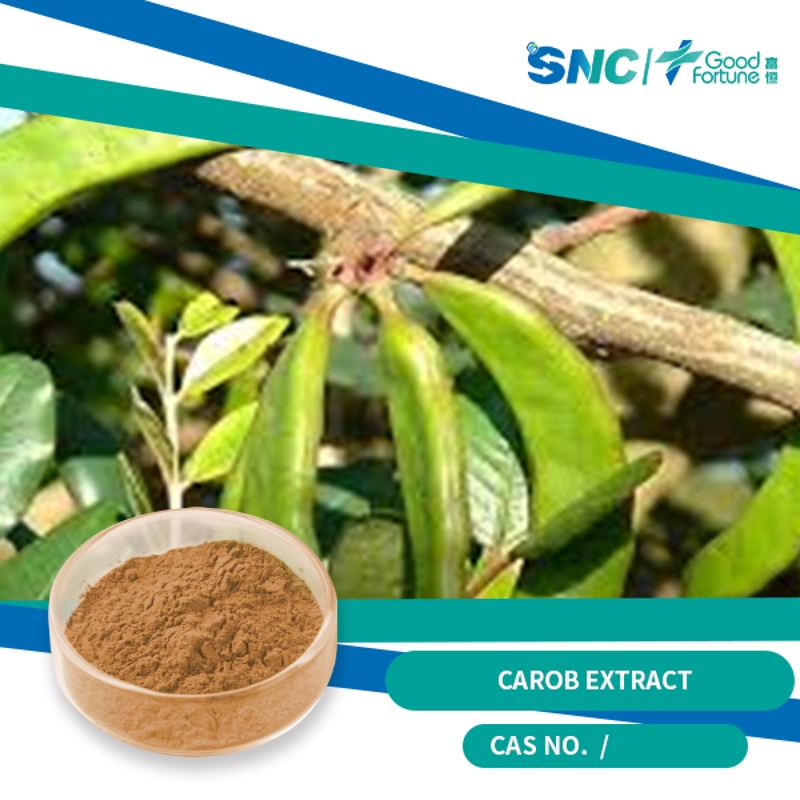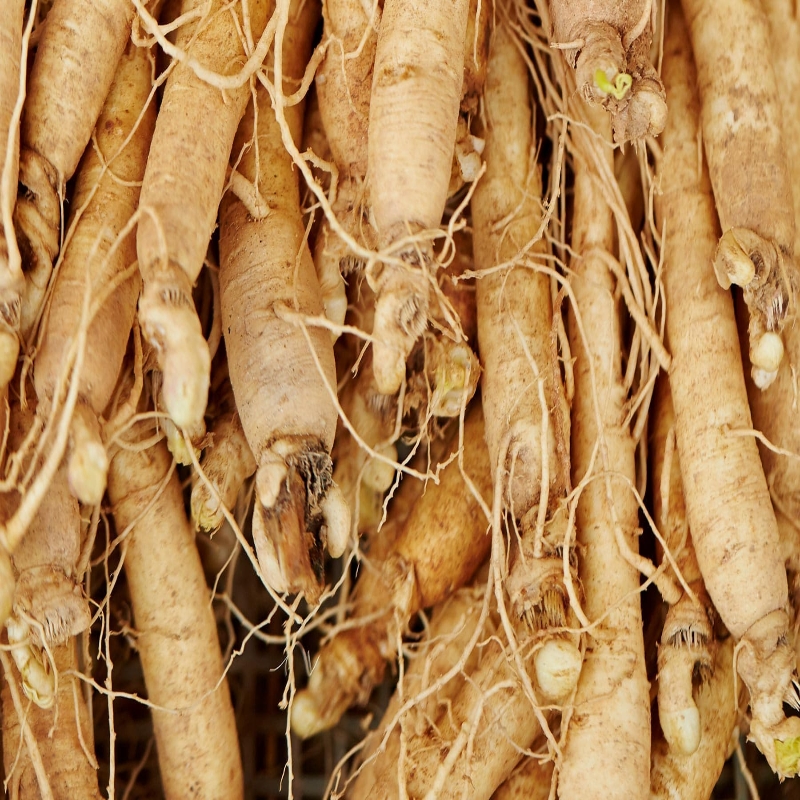Stevia: an end to aspartame
-
Last Update: 2010-03-24
-
Source: Internet
-
Author: User
Search more information of high quality chemicals, good prices and reliable suppliers, visit
www.echemi.com
Since June 2009, China 's Stevia export products began to enter the price rising channel, stimulated by the increasing demand for Stevia abroad and the US FDA' s approval that Stevia can be sold as GRAS grade products With more and more questions raised by medical researchers from western countries about the safety of aspartame, the most popular artificial sweetener in the international market, stevia (chemical name: stevioside), a natural sweetener that has been used in South American countries for more than 1500 years, has become popular in the international market Stevia is extracted from Stevia leaves in the Pharmacopoeia of many countries, and its sweetness is about 300 times that of sucrose Stevia not only does not contain any calories, but also has no effect on blood sugar after eating It is an ideal sucrose substitute Japan is the first country in the developed world to introduce Stevia from South America and has achieved success Since then, stevia has been very popular in Japan So far, stevia has been used in Japan for more than 30 years, widely used in food and beverage, oral liquid, chewing gum, lozenge and other products to replace aspartame Japanese scientists have confirmed through a large number of animal experiments that Stevia has no effect on the body, and no risk of carcinogenesis, teratogenesis and gene mutation After Japan, Germany, France, Italy and other European countries began to use Stevia as a natural sweetener instead of saccharin sodium, aspartame and cyclamate According to European medical researchers, stevia from Stevia is safer for human body than artificial sweetener; more importantly, stevia belongs to "zero calorie" sweetener, which is superior to natural sweetener products such as xylitol As early as ten years ago, stevia has been listed in the appendix of Pharmacopoeia by many developed countries including Japan, Germany and France China's Pharmacopoeia 2000 edition has also officially included Stevia items Recently, several developed countries, including Australia, New Zealand and Nordic countries, have announced that Stevia can be used as a pharmaceutical and food supplement At that time, the safety of Stevia had been recognized by almost all western countries except Britain and America Why the U.S drug administration has not approved Stevia to be included in the appendix of the U.S Pharmacopoeia? Recently, according to the US media, all this is due to the interference of some US sweetener manufacturers The United States is the largest sweetener market in the world, and the production and sales volume of aspartame, a sweetener developed and produced by American companies, has been ranked first in the world for a long time Aspartame has created tens of billions of dollars of sales since it was listed in the early 1980s Its sales amount has been the first in the world since the 1990s In fact, it is well known that aspartame has side effects According to a large number of literature reports published abroad, the frequent use of aspartame containing food and drink can induce brain cancer, headache, blindness and convulsion As a result, companies such as Searle, which produces aspartame, actively lobbied the US House and Senate through their powerful "out of house" group, and finally succeeded in getting Congress to pass a resolution banning Stevia from entering the US market As a result, the United States is the only western country in the world to ban the sale of Stevia by the government But "green mountains cannot be covered, after all, they flow eastward." With the increasing demand of American consumers for "zero calorie" sweetener Some food / beverage manufacturers in the United States began to follow the trend and privately add Stevia to their products Among them, Lipton black tea company and xiles seasoning food company, two major American food producers, use the most amount of imported Stevia Under the strong demand of many small and medium-sized food companies in the United States, the FDA finally had to make concessions to allow Stevia to be officially sold and used in various beverage and food products in the United States as a "dietary additive" As soon as the gate opened, stevia products flooded into the US market Recently, according to a news first published in the US journal of financial and industrial analysis, the US FDA is studying the feasibility of using Stevia as a gras grade (recognized as safe) product This means that from now on, stevia can be used as a adjuvant of food and drug as well as white sugar, and there is no need to submit the product safety test report to FDA The fact that the export volume accounts for 80% of the international share that the FDA is about to approve Stevia as gras grade product is undoubtedly a great good news for Chinese Stevia production and export enterprises Once Stevia is listed in the GRAS product catalog in the United States, it means that it will be applied to the food, beverage, daily chemical products and pharmaceutical industry in the United States without any suspense China has become the world's largest producer and exporter of stevia sugar since the introduction of Stevia Mingguang City, Anhui Province has also formed a 100000 Mu Stevia cultivation base At present, the annual output of Stevia in China is close to 4000 tons, 80% of which is used for export China's Stevia products are mainly sold to developed countries such as the United States, Europe and Japan, as well as Singapore, Hong Kong and Taiwan In 2004, China's export of Stevia has passed the strict JECFA certification, which is equivalent to obtaining the official "pass" for export to the western market In the past seven or eight years, the export price has always fluctuated between 100000 and 180000 yuan According to the data recently released by China's Stevia Association, at present, the export of Stevia in China accounts for about 80% of the international Stevia market Since June 2009, due to the increasing demand for Stevia in foreign countries and the US FDA's approval of Stevia as a gras grade product sales and many other good news, China's Stevia export products began to enter the price rise channel It is said that it has reached RMB 220000-230000 per ton in the near future Of course, in the past few years, China's Stevia export is not smooth sailing Just six years ago, in 2002, the stevia industry in China almost faced the situation of "total collapse" At that time, some Singapore newspapers published research articles by so-called western researchers, saying that eating Stevia may cause sperm death and prostate cancer This report caused great panic in the international community, which led to the cancellation of orders by foreign businessmen who imported Stevia from China The incident is known as the "Stevia storm." Later, the truth quickly came to light - it turned out that this news was false news, a rumor spread by Western sweetener production groups Its purpose was to curb and crack down on China's increasing export momentum of Stevia and maintain their monopoly position in the international sweetener market However, the above lies spread maliciously by Western media do cause a heavy blow to China's Stevia export According to the preliminary estimate of the relevant industry associations, the export volume of Stevia in 2002 decreased by 45% compared with the previous years What's more, in this year, farmers all over the country who grow Stevia for their livelihood, as well as the production and export enterprises of stevia sugar in China, have also suffered great setbacks Fortunately, the stevia storm of 2002 soon passed Since then, China's Stevia export has regained its vitality and reached its peak in two years In the future, the stevia industry in China will have a good market prospect -- further expansion of production capacity After years of development, the actual production capacity of Stevia in China is estimated to be more than 4000 tons With the US Canada joint venture GLG group investing hundreds of billion yuan to build 100000 Mu and 50000 Mu super large Stevia planting bases in Mingguang, Anhui Province and Dongtai, Jiangsu Province, it is expected that the annual production capacity of Stevia in China will reach more than 5000 tons in two years In addition, Jilin Province also plans to build a large Stevia base with an annual output of 1000 tons, which is mainly used for export to the markets of neighboring countries such as Japan and South Korea -- the export market demand has increased In recent years, China's export of Stevia has formed a group of fixed customer groups, such as Japan, South Korea, Singapore, Hong Kong and Taiwan of China, Western Europe, North America and other markets The annual export volume of Stevia only to Japan, South Korea, Europe and the United States is more than 500 tons It is understood that due to the high labor cost, South Korea and Japan have stopped planting and producing stevia, and instead imported it from China In the United States, some international beverage giants, including Coca Cola and Pepsi Cola, have imported Stevia products from China Western economists predict that the FDA will soon pass the GRAS certification of Stevia, which will greatly promote the total sales volume of Chinese Stevia in the U.S market, and its annual sales volume in the U.S market is likely to more than double -- the purity of the product is improved It is understood that at present, the stevia produced in China still has a light "grass flavor" due to its low extraction purity Recently, researchers from Beijing and Tianjin have worked together to tackle key problems Last year, they have successfully developed a new high-purity Stevia product with stevioside purity of more than 95% It is not only odorless, but also tastes close to white sugar and has a natural plant flavor It is believed that this new generation of Stevia will be widely welcomed in the international market.
This article is an English version of an article which is originally in the Chinese language on echemi.com and is provided for information purposes only.
This website makes no representation or warranty of any kind, either expressed or implied, as to the accuracy, completeness ownership or reliability of
the article or any translations thereof. If you have any concerns or complaints relating to the article, please send an email, providing a detailed
description of the concern or complaint, to
service@echemi.com. A staff member will contact you within 5 working days. Once verified, infringing content
will be removed immediately.







